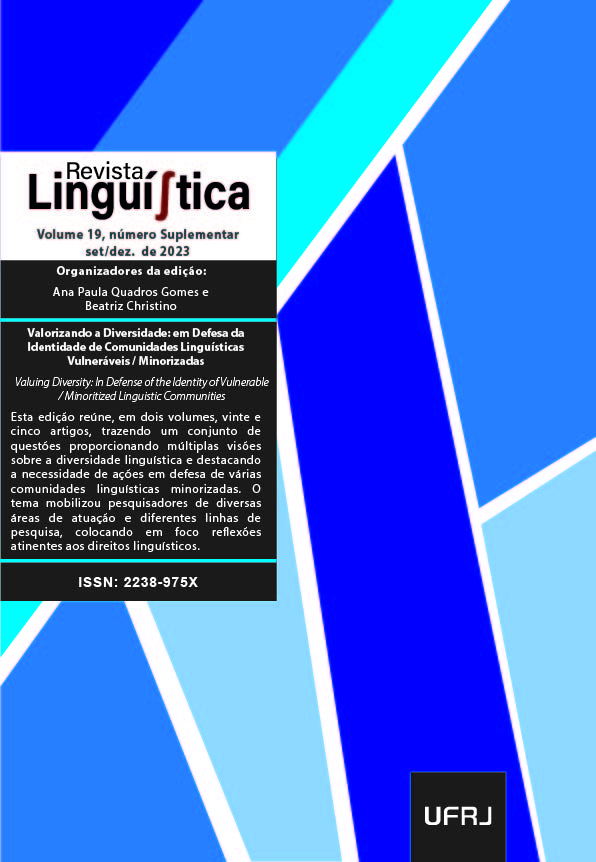Bilingual education of deaf people and resistance in Deleuze and Guatarri
DOI:
https://doi.org/10.31513/linguistica.2023.v19nSup.a60349Keywords:
Educação Bilíngue, Filosofia da Diferença, Língua de Sinais Brasileira, Pessoa Surda, Resistência.Abstract
This text aims to discuss the bilingual education of deaf people and their political-linguistic resistance, establishing a connection between French philosophy, using the ideas of Deleuze and Guatarri, with regard to the conceptual and creative action of the philosophy of difference, through bibliographical research. Relevant discussion for the inclusion and appreciation of linguistic and cultural diversity. In the context of bilingual education for deaf people, resistance refers to the movement and struggle to ensure the recognition and appreciation of sign language in educational institutions. Historically, deaf people have faced discrimination and marginalization in society, and this has also been reflected in the field of education. Resistance emerges as a response to these forms of exclusion and oppression. Deaf subjects have been fighting for their linguistic and educational rights, claiming the recognition and use of sign language as a fundamental right. Resistance seeks to challenge educational practices that prioritize oralization and disregard sign language as an effective means of communication for deaf people. It seeks to ensure access to inclusive education that values deaf culture, provides full acquisition of sign language and promotes the academic and socio-emotional development of deaf students. By facing the barriers and challenges imposed by the educational system, the resistance aims to overcome the deficient view of deafness, which considers deafness as a disability to be corrected, and to recognize sign language as a legitimate and appropriate language for communication and the learning of deaf people.
Downloads
Published
Issue
Section
License
Copyright (c) 2024 Revista Linguí∫tica

This work is licensed under a Creative Commons Attribution-NonCommercial 4.0 International License.
Authors who publish in the Revista Linguí∫tica agree with the following terms:
The authors maintain their rights, ceding to the journal the right to first publication of the article, simultaneously submitted to a Creative Commons license permitting the sharing with third-parties of published content as long as it mentions the author and its first publication in the Revista Linguí∫tica.
Authors may enter into additional agreements for the non-exclusive distribution of their published work (for example, posting in online institutional or non-profit repositories, or book chapters) so long as they acknowledge its initial publication in the Revista Linguí∫tica.

The journal Revista Linguí∫tica is published by the Post-Graduate program in Linguistics of UFRJ and employs a Creative Commons - Attribution-NonCommercial 4.0 International (CC-BY-NC).









